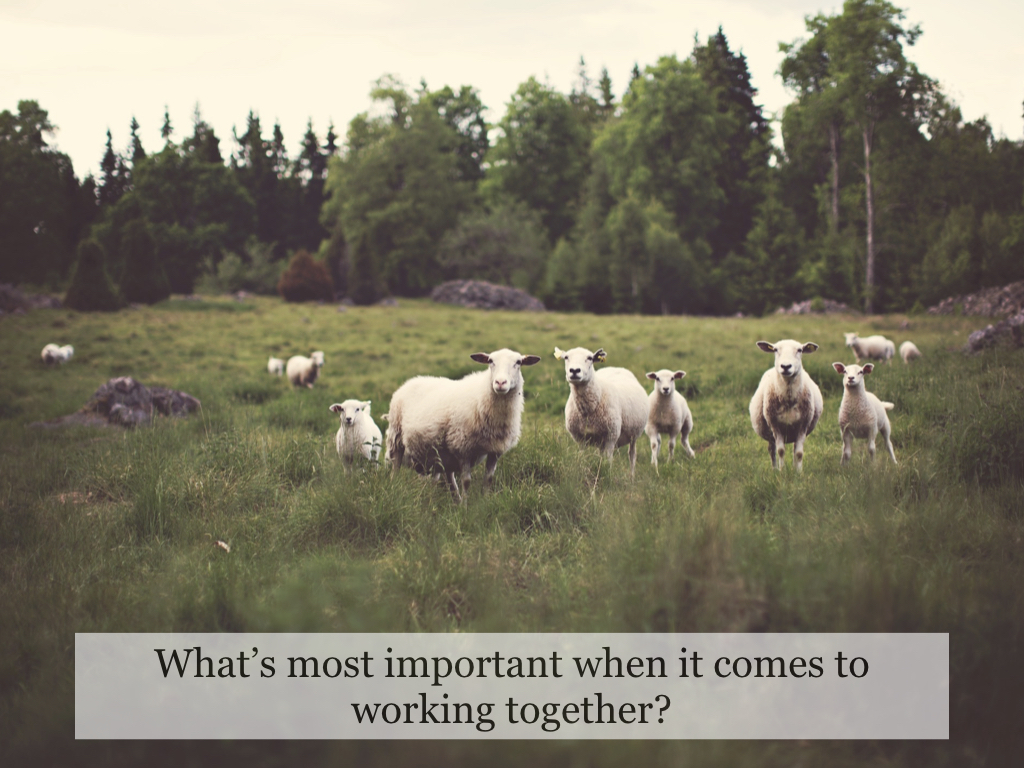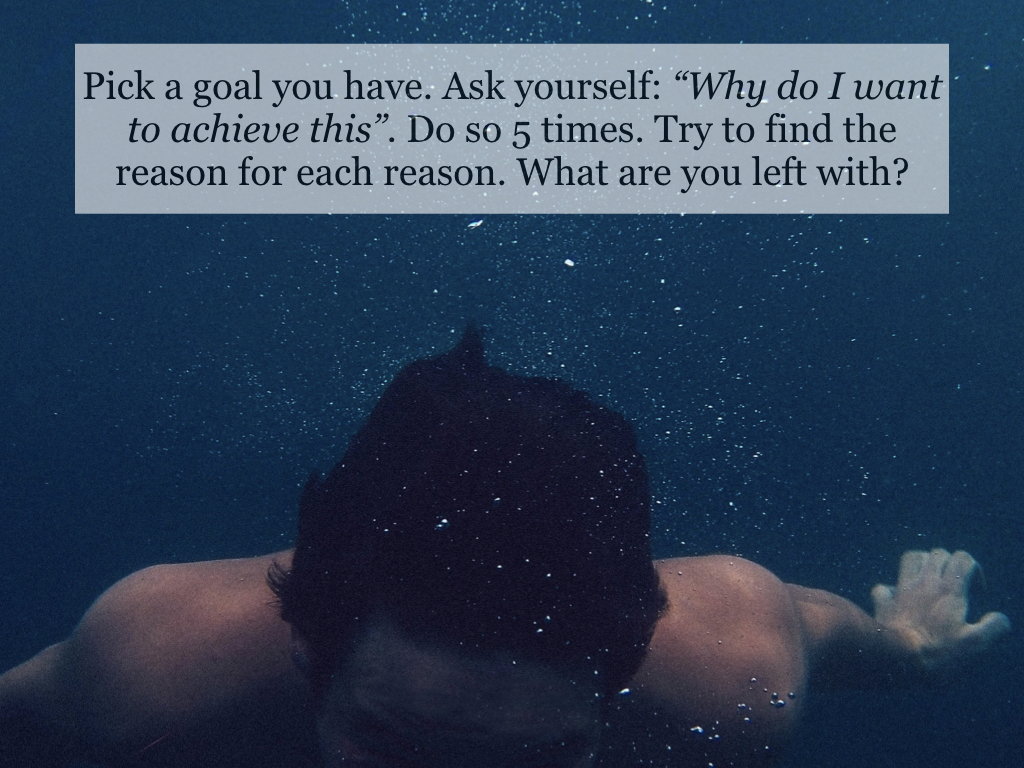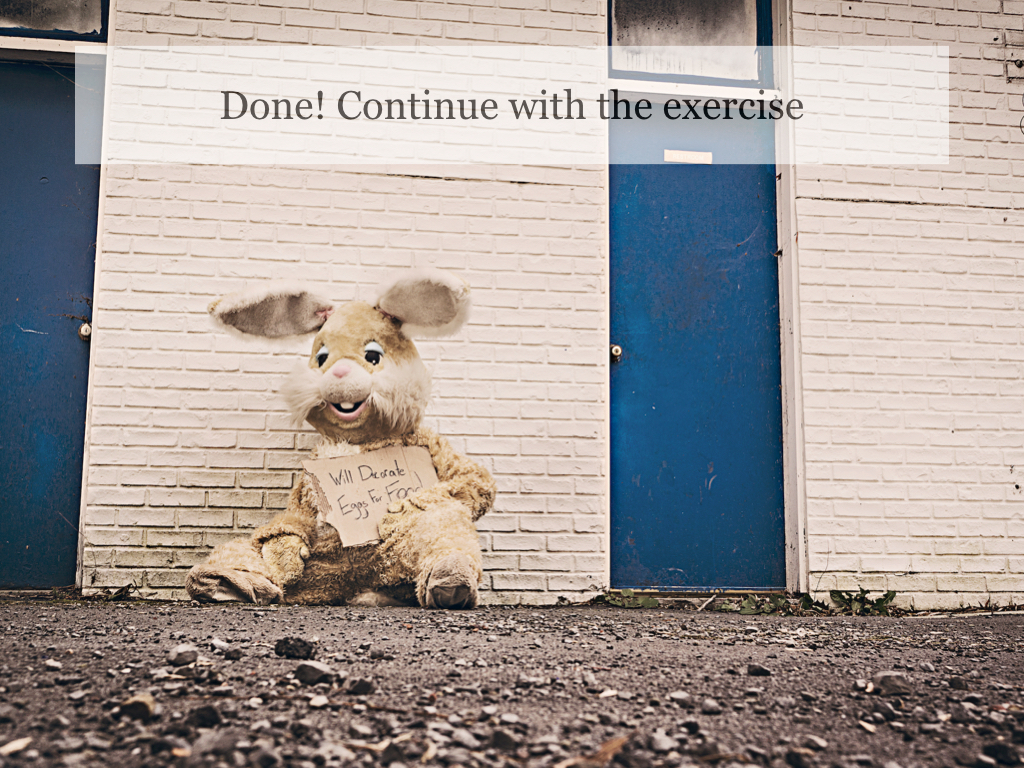Your Values
Every time you can't seem to make a decision, have internal conflict or doubt, is because you want both or neither. And you're stuck in deciding what is more important to you. Having clarity on what your values are, makes it possible to make these decision and to design your life and business in a way that it incorporates your values.
Your values are what matters to you. What's important to you. We value the things that we believe will make us feel good, lead to positive emotions and fulfil our needs. And vice versa, we 'disvalue' what we believe will bring us pain. We develop our values by our experiences. Everyone has a different set of values.
Quickly, a distinction. There are end values: The emotional states you desire. And there are means values: The ways and strategies that you believe will help you trigger the emotional states you desire.
The exercise at a glance
We'll use free writing off a prompt (in our case questions) to gain more insights in your values. I pose questions, you write down what comes up for you.
The exercise takes about 60 minutes in total. I'll ask you to (1) set up everything, (2) do the warm-up questions, (3) follow the process further to come up with your values, (4) revise and refine, and (5) compare reality with your ideal self.
You can go deeper with this exercise, by looking back at what shaped the needs you want to meet most (6) and by also setting up rules for your values (7). This takes an extra 60 minutes.
Free Writing
Free writing (sometimes called journaling) is the opposite of staring out of the window, think of the right answer and writing it down in 3 succinct bullets. This is not a test!
The trick is to read the questions, start writing and keep writing until the time runs out. Write down what comes up for you. Don't take you pen off the paper. Don't know what to say? Write that down. Everything that doesn't make sense (and that will be a lot) you can filter out afterward. "Write drunk, edit sober".
Again, it's not about writing down the correct answers. It's about writing down, period. Do not filter on realism, truthfulness or what you're supposed to. I understand. We're trained to only answer what we believe is correct. But we need to be able to write down the wrong answers in order to get to the juicy stuff. Expect and hope to be wrong! It'll trick your brain into lowering its guard and be honest.
It's deceptively simple, but trust me on this.
Preparation
Make sure you can work undisturbed. Close the door. Turn off notifications and any alerts.
Get a pen you can write comfortably with and some piece of paper. Enough paper! I would strongly advise against using your laptop for this. Studies have shown that when using a digital device to write, you write less generatively and more structurally and orderly. We want the generative creative energy!
You'll need something that keeps track of the time for you. A timer on your phone can work. A Pomodoro App like Tomato One or this one online will do the trick. We'll use 1,5 minute 8 times; and 1 time 25 minutes.
You can use the images on this website (and use the timer app). Or you can download the questions in presentation form so you can put it on slideshow (it has set times for transition). Here is a pdf-version, a Keynote-version or a Powerpoint-version.
The Process
STEP 1: Do the prep above
STEP 2: Warm-up questions
Here are 8 warm-up questions. Below in images, or downloaded through the links in the prep.
Spend 1,5 minute per question writing down what comes up when you hear the question. Again, it's a warm-up. A way to prime the brain. Getting these questions answered correctly is not the goal.
After answering all of them, glance over them for 1 minute, add here and there, and go on to STEP 3.
STEP 3: Your values
Warmed up? Here goes. Spend 25 minutes answering the following question(s). Again write freely. Write down everything that comes up for you.
“What most important to you in life? What do you value?”
When about 15 minutes in, think about the following 10 areas of your life. Thinking about what you value in each areas, what values would you add?
Living environment,
Socially,
Spiritually,
Career,
Financially.
Physically,
Mentally,
Emotionally,
Attractiveness,
Relationships,
STEP 4: Revise and Refine
After free writing for 25 minutes, go through your looooong list.
See if you can find means values that are masquerading as end values. Not sure? Ask yourself why you value it. What do you hope or believe it will bring? Try to get as much as you can to the end values.
Take a look at this website of Steve Pavlina where he lists 418 values. That’s one long list. Most will mean little to nothing to you. But some will be ones that you’ve didn’t think of yet, or that describe the value more precisely.
Start circling the values you wrote down that are the very most important to you.
Pick your top 15. The ones that if you could only design your life to meet these 15, it would be better than any other combination of 15 values.
Note, you can try to be smart by picking words that mean more than one thing to you. But, by doing so, you’re actually creating more unclarity , which was the exact opposite of the intention of the exercise. As much as you can, try to be as specific as possible!
Make a new list of your top 15 values. 15 words, each accompanied with a small sentence explaining what it is.
Step 5. Reality vs Ideal self
A distinction. When thinking up your values, you’re probably thinking of your ideal self. Of what you consciously tell yourself what is important. In real life, your actions might (probably) show a different story. You consciously know those values to be important. But unconsciously or when under stress act according to different values.
For example, you might value honesty. But you’ve probably lied to someone in the past. What gives? Well, if you also value certainty and human relationships, you might choose the certainty of not damaging the relationship over taking a risk by telling the truth.
Looking at your values, what values have in the past been shown by your actions to take a back seat? Which values do you want to consciously push more to the forefront in the furure?
Step 6. Human Needs (an optional extension #1)
What you value is partly based on basic human needs, but largely on past experiences in your upbringing. We all have 4 basic human needs: 1) Certainty, 2) Variety, 3) Significance and 4) Love or Connection. And we all find a way to meet these.
And everyone has a top 2 - based on their upbringing - that they need more and that determines all their actions. Beyond these 4, there are 2 spiritual needs: 5) Growth and 6) Contribution.
Listen to this Tony Robbins excerpt from Date with Destiny to learn more about these needs.
In it he says: The 2 needs that you strive to meet most are determined by whose love you craved most growing up, your mother’s or your father’s. Sit with that for a moment. Can you see why you value certain values more than others?
Now, that’s pretty foundational. But not permanent. Because knowing where it comes from allows you to play with it. You can work to change it and prioritise certain other needs more when you want to.
Step 7. Rules (an optional extension #2)
When you’re clear on what things are most important to you, you can design your life and work in a way that it will meet those.
For each of your top 15 values, write down what you believe needs to happen for you to feel your value is met.
—
See you soon!









